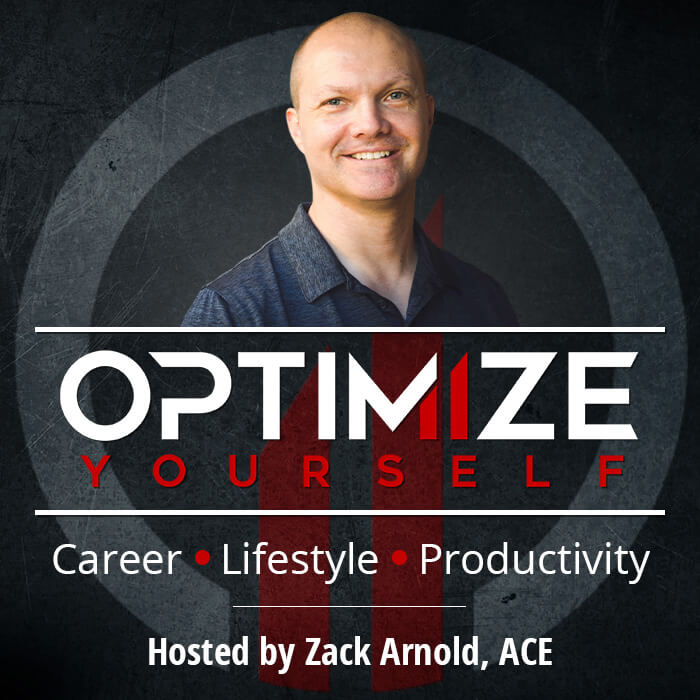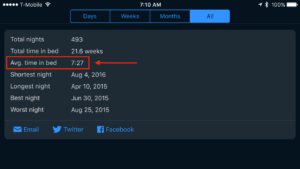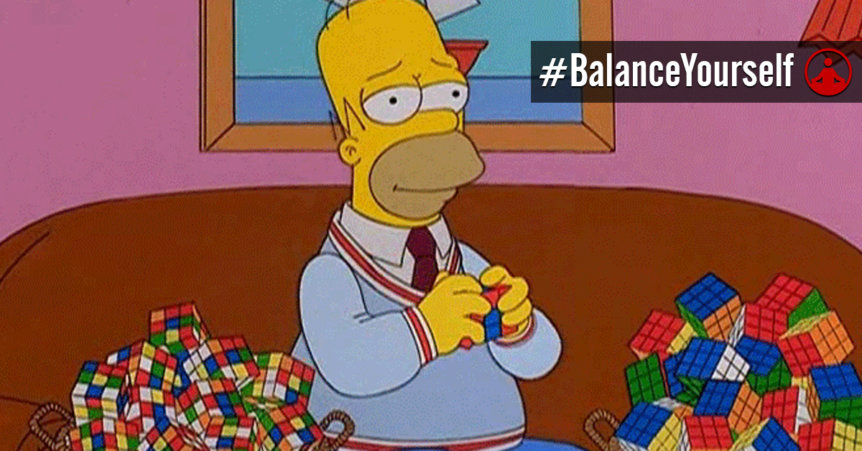

Zack Arnold
How Total Burnout Led to the Most Productive Year of My Life
My name is Zack Arnold, and I’m a recovering workaholic.
Here’s the thing about being a workaholic that nobody ever talks about. Unlike other addictions that once overcome can be avoided completely, when you are a workaholic, you can’t just abstain from working.
How successful would a recovering cocaine addict be at conquering their addiction if they could “have a taste” every now and then? Or better yet, let’s say you’re a recovering alcoholic who hasn’t had a drink for five years, and you’re in a social situation where someone offers you alcohol. With conviction and confidence you simply say, “No thank you. I no longer drink.” Now imagine that you are a recovering workaholic and someone offers you a job, and your reply is, “No thank you, I no longer work.”
Imagine that you are a recovering workaholic and someone offers you a job, and your reply is, “No thank you, I no longer work.”
Clearly 100% abstinence from working wasn’t an option for me one year ago after (barely) surviving the most brutal period of burnout and depression I had lived through in over a decade. So my only choice was to reassess the way I did everything and come up with a better long term plan for survival.
One year later I can confidently and proudly say this has been (by far) the most productive year of my life. Paradoxically I have also worked less over the last year, spent more quality time with my family, and gotten more consistent sleep than at any other time in my career.
So how is this possible? Unfortunately I don’t have one single magic bullet for you, but my podcast listeners know I’ve dropped many breadcrumbs for you over the last year as to how I have upgraded and maintained my life and my schedule to avoid future burnout.
If I were to narrow down every successful change I’ve made over the last year to the most impactful needle movers…
Here are the top three recommendations I have for avoiding burnout and maintaining better health amidst the chaos of working in post-production:
GET MORE SLEEP
The idea of “working smarter, not harder” is a obsession passion of mine. I’m always on the lookout for ways to improve my productivity – Better workflows, apps, scheduling tools, task managers, email software – you name it, I’m on the lookout for it. After years of research and experimentation, I can confidently say the #1 way to maximize your productivity is to get enough sleep. Every single night.
I know that answer sucks. And I know that answer isn’t nearly as sexy as a .99 cent to-do list app that will save the world. But it’s the hard and honest truth.
Over the last twelve months I have written and produced 42 podcast episodes, I released my documentary film GO FAR: The Christopher Rush Story on all major digital platforms, I edited 5 episodes of the TV show Empire, and 4 episodes of a new series coming out later this Fall for Paramount. What’s even cooler is that earlier this year I released the beta version of my first online learning course titled ‘Move Yourself’ which is the first of several courses I plan to design over the next couple of years for my Optimize Yourself program. And this doesn’t even include the activity video library I recently released containing over 100 individual videos with short exercises you can do right at your desk to alleviate chronic pains and increase your mobility.
Needless to say, a lot of positive changes have happened over the last year. To be clear I am not sharing any of this to boast or brag. I’m sharing this because I accomplished everything I just listed above while averaging 7 ½ hours of sleep every night.

Stats courtesy of the Sleep Cycle Alarm Clock App
Shortly after being knocked on my ass a year ago, I decided I needed to find the #1 force multiplier that would improve and maintain optimal health, and everything I read definitively pointed to sleep being absolutely imperative if I wanted to consider myself a “high performer.” So I dropped every single biohack I was focusing on at the time and just worked on improving the quality of my sleep. And after months of research and experimentation, I came up with the following strategies to help you get the best sleep of your life.
If you’re as curious as I was about why sleep is so important from a biological perspective, this TED Talk from neuroscientist Jeff Iliff may just change your life:
PRIORITIZE MOVEMENT OVER EXERCISE
We get so caught up in the vicious cycle of constantly thinking we should “get in shape” and spend more time at the gym, even if it means chronically sacrificing sleep (Note: Sleep trumps exercise 95% of the time). But when you’re stuck in a dark room for 14 hours a day chained to a desk, hitting the gym on a regular basis just isn’t realistic.
For years I suffered from “All or nothing syndrome,” thinking if I was going to exercise I was going to do it right. In the past six years I’ve completed the P90X program, P90X2, and two rounds of P90X3. I’ve run two Tough Mudders, a Rugged Maniac, and six Spartan Races, one of which was a half marathon in the mountains of Northern California. But even though I was physically strong and in good aerobic condition, I was constantly exhausted at work. I was taking naps all the time. And it was impossible to focus.
Even though I was strong and in good aerobic condition, I was constantly exhausted at work. I was taking naps all the time. And it was impossible to focus.
Everyone always talks about how much energy you’ll have when you start exercising, but there’s a thin line between staying active and overdoing it (I’ve never been good at staying within the lines). What I didn’t realize is that if you exercise at high levels of intensity, you are putting your body through a tremendous amount of stress and your cortisol levels skyrocket. And more cortisol is the last thing I needed while dealing with never ending piles of notes from producers, impossible deadlines, and trying to raise two young kids.
In the last year I’ve begun to prioritize constant movement over exercise, and the results have been nothing short of profound, so much so that I designed an entire online course around this concept (click here to learn more about Move Yourself). When you understand there is a difference between exercise and activity, it’s much easier to stay active throughout the day even if you live inside a small dark room. In my podcast How Being Sedentary Is Killing You with Dr. Joan Vernikos, former director of life sciences for NASA, we talk about the concept of NEAT Movement (Non-Exercise Activity Thermogenesis), or to put it simply, the constant movements we can make throughout the day that don’t cause you to break a sweat, and how they can extend your lifespan, decrease the risk of chronic disease, and furthermore, How Movement Can Make You Smarter.
Often on a bad day I’m still able to get upwards of 10,000 steps because I’m constantly in motion and incorporating NEAT movement, and more importantly, I’m able to maintain consistent levels of focus and avoid afternoon brain fog because I’m pumping adequate levels of oxygen to my brain. And have I gained a bunch of weight? Nope, despite not having done any high intensity exercise for over 7 months now, I’m within the same 3-5 pound range I was when training heavily for events. And my maximum number of push-ups has actually gone up.
To be crystal clear, I’m not saying you shouldn’t exercise. Exercise is an absolutely vital part of a long term health plan, but don’t throw out the baby with the bathwater if your schedule won’t allow dedicated time to hit the gym. Staying active all day long is the next best option, and it’s totally possible if you know how to build the right systems.
PROTECT YOUR TIME (AND YOUR SCHEDULE)
The most profound shift I’ve seen in the quality of my life and my productivity over the last year has come from a 180º mindset shift around the way I schedule my day and my weekly goals. Shortly before burnout a year ago I was cramming everything I possibly could into my schedule with no thought about the consequences. My goal was to always be “busy,” but there is a profound difference between being “busy” and being “productive.”
There is a profound difference between being “busy” and being “productive.”
On a typical day from a year ago I would record podcasts early in the morning, cram my morning commute with phone calls, then edit all day long, schedule more phone calls on the way home, put my kids to bed, then work for 5-6 more hours on my own personal projects until I basically passed out. I was in constant reaction mode not allowing time for contemplation or course corrections as the day changed. And if new requests came about, I was a ‘Yes’ man and just kept piling more on more onto my to-do list. Clearly this did not end well.
Now I am very protective of my daily schedule. I am meticulous about laying out my day the night before, and I don’t just list all of my appointments for the day, I list projects and the tasks that are required to complete those projects. So that means if I would like to accomplish five things the next day, I have to lay them out on my calendar and see if I can get all the colored blocks to fit (I just use the Apple Calendar app). The key to getting everything done is doubling the size of the time blocks, because sh*t always takes longer to get done than you think it will. For example, if I think it’s going to take an hour to write a blog post, I schedule a two hour block of focused time to write.
I’m a big fan of the task manager OmniFocus. It helps me break down all of my larger macro goals into more manageable micro goals (part one of the GO FAR system). But I was using OmniFocus two years ago and it wasn’t preventing total burnout. So what changed? Forcing myself to drag those tasks onto my calendar as mentioned above was a good start, but the real key was allowing space in between those blocks. To put it simply, when I schedule my day now, I always build in margins. If you don’t build in time to decompress between tasks, meetings, or client edit sessions, you never give your nervous system any time to settle down and you will find yourself constantly living in “reaction mode.”
If you don’t build in time to decompress between tasks, meetings, or client edit sessions, you will find yourself constantly living in “reaction mode.”
Now that I have a more clearly defined calendar and a system to accomplish my goals for the day and the coming week, it is much easier to deny requests as they come up. If there is no time available, I can politely say that I’m unavailable to fulfill whatever request has come my way. This doesn’t mean I have to be rude or impolite, I just have to be honest. And if a request comes along that’s too good to pass up, then I simply reprioritize my tasks for the week. My rule for accepting requests now is very simple: “If the answer isn’t ‘Hell Yes!’ the answer is most likely going to be ‘No.”
(BONUS: My favorite tool for managing appointments and minimizing email tag is YouCanBookMe).
YOUR FIRST ACTION STEP
After a year of trial and error, I am convinced that without question the top three reasons why I have successfully been able to accomplish my goals and balance them with better health and family time is getting adequate sleep every night, moving constantly throughout the day, and more effectively managing (and protecting) my time. Now that I’ve figured out how to maintain high levels of performance amidst the chaos of our industry, it’s time to get you headed down the same path.
I’m a big fan of breaking down complex concepts into very simple actionable steps so anyone can move towards their goals. Inspiration is great, but if it doesn’t come with an instruction booklet, what’s the point? Therefore…
Your first action step after reading this article is to create a 5 minute margin somewhere in your day (TODAY) and assess whether or not you are getting enough sleep, movement throughout your day, and if you are in control of your schedule, or if the day controls you. Choose the item that needs the most work, and implement one strategy listed above.



Comments 3
Pingback: Ep142: Michelle Tesoro (ACE) On Playing Chess With Your Health & Well-Being - pt2
Pingback: Ep148: “I Was Fired For Requesting a Single Mental Health Day” | with Jim Page
Pingback: Ep139: Fostering Better Relationships and Improving Team Culture | with Jason Barger